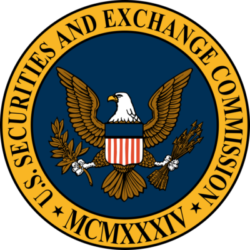
Professional Financial Investors, Inc., and specifically, its former president, Lewis I. Wallach, was charged by the Securities and Exchange Commission and consented to the entry of a judgment in connection with operating a $330 million Ponzi Scheme and stealing $26 million from investors. The U.S. Attorney’s Office for the Northern District of California also filed criminal charges arising from the same conduct alleged by the SEC. Securities and Exchange Commission v. Lewis I. Wallach, No. 3:20-cv-06756 (N.D. Cal. filed September 29, 2020)
Wallach and the deceased founder of Professional Financial Investors, Inc. were alleged to have misappropriated more than $26 million from investors as part of a larger Ponzi scheme, in which approximately $330 million was raised from more than 1,300 investors. Many of the defrauded investors were elderly and retired. Investors were told that their money would be used primarily to invest in multi-unit residential and commercial real estate but in fact a substantial portion of the investor funds were used in a Ponzi-like fashion to pay back previous investors or to cover operating losses.
The company is alleged to have falsely told investors that their investments were secure and liquid., and that it was financially secure because it had large cash reserves, lines of credit and the ability to sell properties owned “free and clear.” However, in fact, the company, Professional Financial Investors did not have large or even sufficient reserves to meet its obligations, had no lines of credit, and all properties had outstanding debt.
Professional Financial Investors fraudulently sold investors primarily three types of securities:
(1) Promissory notes or “Straight Notes,” which carried an annual interest rate of 9% to 12%, and where the investors could choose either a monthly cash payment or allow the interest to accrue:
(2) Deed of Trust Notes or DOT Notes, supposedly secured by junior deeds of trust certain real estate which carried an annual interest rate of 6% to 9%, and where investors were to receive monthly interest cash payments; and .
(3) Membership interests or an equity membership interest in an Limited Liability Company that purchased a specific property, and where Professional Financial Investors served as the general manager. Investors received quarterly distributions that on average provided for an annual return of 6% to 9%.
Investors were told that the interest payments and equity distributions for all of the securities offered and sold by Professional Financial Investors were to be made based on the income generated by the management of the underlying real property
In reality, a substantial portion of investor funds were used in a Ponzi-like fashion to pay back previous investors or to cover operating losses at PFI and PISF. Wallach is alleged to have stolen the more than $26 million directly from bank accounts over which he had control and wired over $3 million from company bank accounts to financial accounts controlled by him or his wife In addition, over $2.6 million in investor funds were allegedly misappropriated by Wallach to pay his personal credit card charges, including for items such as extravagant vacations, luxury cars and private school tuition.
The fraudulent scheme began to unravel shortly after the death of the companies’ founder on May 6, 2020, when a review of the company’s financial records revealed questions about the solvency and historical operations the companies. On July 16, 2020, a investors filed an involuntary Chapter 11 bankruptcy petition in Bankruptcy Court for the Northern District of California.
Wallach consented to entry of a judgment ordering a permanent injunction and an officer-and-director bar, with civil penalties, disgorgement, and prejudgment interest to be determined by the court at a later date upon motion by the SEC. The proposed judgment is subject to court approval.
Victims of the Professional Financial Investors Ponzi scheme should consult with qualified counsel to determine their rights and obligations, including whether they may have any claims against stockbroker or investment professional facilitating or recommending the purchase of these securities.
Investors should also be aware that securities class action claims are often the only, and the most efficient way for investors to recover damages for injured investors against responsible third parties, particularly in Ponzi scheme-like cases.
Legal fees in these cases are contingent in these cases, which absent any statutory fee provision for fees are common fund cases, where legal fees and costs are awarded, or approved by the Court, together with expenses.
If you are an investors in the Professional Financial Investors Ponzi scheme, contact us for a free, confidential, no-obligation evaluation of your claims.






